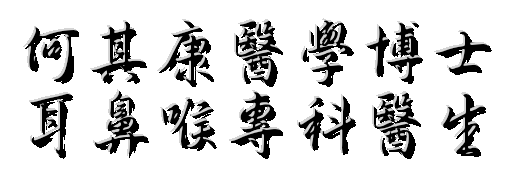TYMPANOPLASTY / MASTOIDECTOMY: POST OPERATIVE INSTRUCTIONS
This instruction sheet is designed to help patients better understand what to expect- and what to watch for- after surgery. If questions or problems remain after reading this sheet, please call our office.
1. Remove the outer dressing 24 hours after surgery. After removing the dressing you may change the cotton ball as needed when soaked with drainage. DO NOT REMOVE ANYTHING ELSE FROM INSIDE THE EAR.
2. You may shower, but avoid getting water directly into the ear. Wear a piece of cotton covered with Vaseline while showering.
3. Make sure that you cough or sneeze with your mouth OPEN.
4. Do not blow your nose vigorously.
5. Call the office as soon as possible after your procedure to make an appointment for 7-10 days for a post-op check-up.
WHAT'S NORMAL?
Popping, crackling, lack of hearing improvement and bloody discharge from the ear is common for many weeks.
PAIN:
Ear surgery is not particularly painful. Most patients will feel this as a headache or soreness. You may experience some sore throat due to anesthesia, but this usually resolves in a few days. Take only the pain medication that was prescribed. Do not take aspirin or ibuprofen medications, as this will thin the blood and increase your risk of bleeding. Tylenol is preferred. .
ACTIVITY:
You should rest the day of the surgery to recover from the anesthesia. Sleep on your back with your head raised on two pillows. Do not lie on the operated side. This will help decrease swelling and may make you more comfortable. Light activity is recommended the first 2-3 days after surgery. Thereafter, you may slowly increase activity as tolerated, but avoid bending, straining, strenuous activity or exercise for 2 weeks.
DIET:
Try to start with something thin and light, like clear liquids and soup. You may have some nausea from the anesthesia or pain medications. If you do not have any nausea, you may slowly increase this to a general diet.
LIMITATIONS:
The middle ear is a very delicate structure and can be affected by pressure and physical forces for up to 4 weeks after surgery. You must avoid contact sports and jarring activities like jogging. Do not attempt to cough, sneeze or blow your nose. If you have to sneeze or cough, keep your mouth open. You can travel, but you must not fly since the barometric pressure changes can damage the ear.
CONCERNS:
Dizziness:
This is not an uncommon symptom to have after any ear surgery. If severe, you can start with (over-the-counter) Bonine. This is the same as Antivert (Meclizine).
Numbness: If an incision was made behind the ear, the lower half of the ear can feel numb.This will slowly resolve eventually, but may take several weeks.
Change in taste: You may notice a strange taste or numbness on one side of your tongue. It may feel like a penny on your tongue. This is due to swelling of a very small nerve in your middle ear. This will slowly resolve eventually, but may take several weeks.
REMEMBER: Your body is undergoing a gradual healing process. Soon you will be feeling better than ever!



